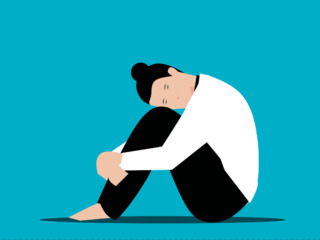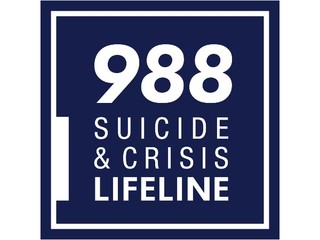
CVS Health CEO: employers should take the reigns on mental health
Many employers feel like they're already helping, but employees don't agree
 There's no doubt that the collective mental health of the country has suffered over the last few years, but the question going forward is, who should ultimately be responsible for getting people back on track?
There's no doubt that the collective mental health of the country has suffered over the last few years, but the question going forward is, who should ultimately be responsible for getting people back on track?
Obviously, much of that is on the individual to seek out their own care, and many have been doing so: demand for mental health services has shot up in the last two years, to the point where it's outpacing supply. The government has also been doing its part, with the roll out of the 988 Suicide & Crisis Lifeline in July, which it says increased calls by almost 50% in just one month.
However, there's another major player who should be stepping up the plate, said Karen S. Lynch, president and CEO of CVS Health, in an op-ed this week: employers.
"Business leaders have a tremendous role to play here. They have an opportunity to not only do the right thing for their employees, but also serve as a catalyst for change in how mental health is recognized as an everyday health issue," Lynch wrote.
She had three pieces of advice for employers on how effectively engage their employees in terms of their mental health, including being transparent and open. That meaning that leaders of organizations should discuss their own mental health issues, to make their employees more comfortable also doing so .
"... the quality of the resources only matters if we're leading by example, talking about mental health issues directly with our employees and making sure they feel comfortable using the resources available to them. Business leaders should be comfortable talking openly with their employees about their own mental health, whether during a large team meeting or a one-on-one conversation," wrote Lynch.
That, she believes, will allow employees to then be more open about their own struggles.
Her second piece of advice was for employers to increase access to mental health care, noting that CVS Health had about 20,000 virtual mental health visits before the pandemic, and 20 million in 2020 and 2021.
"We need to continue to break down barriers so people can easily locate the right resources to get the care they need, whether that is virtual or in-person. This can also help reach populations, such as young adults, that might be more comfortable talking about these types of issues in a virtual setting," she wrote.
Finally, she believes that employers should encourage peer support, so that employees can learn on each other for help. For example, CVS Health offers colleague support groups, publishes a quarterly mental well-being resource guide for its leaders and managers, and it set up a program for employees to voluntarily share inspiring stories on the company's intranet site about how they've overcome their personal mental health challenges.
"This is the time for us to start building on the mental health awareness that the pandemic brought with it, and to make the most of our hard-won lessons. We need to take those everyday conversations about well-being and turn them into real action," Lynch concluded.
A disconnect between employees and employers
What Lynch is advocating for is already happening, as employers are already doing more than they were before the pandemic.
That includes increased coverage: a Kaiser Family Foundation’s 2021 Employer Health Benefits Survey released last November found that 31% of employers expanded the ways through which enrollees could get mental health or substance abuse services, such as through telemedicine, and that 16% of employers developed new resources, such as an employee assistance program for mental health services.
However, employees are increasingly burning out, with a report from Indeed earlier this year finding that 52% of all workers are feeling burned out, up 9% from a survey taken pre-COVID.
There's also a disconnect between how employers feel they are doing and how their employees see it; a survey released earlier this month, commissioned by Modern Health, found that 85% of employers feel they actively listen to the needs of employees, and that 81% employees believe they invest enough in the mental health of their employees, while 85% of employers said their employees felt seen.
The employees in that same survey had a very different take, however: only 51% of them said they felt like their employers actively listen to the needs of employees, and 46% believe their company invests enough in their mental health. Just 59% of employees reported feeling seen by their company and colleagues for their unique contributions to work.
The survey also found that company leaders are not doing what Lynch is advising them to do by being open about their own struggles, as 80% feel like they are expressing their own vulnerability when it comes to mental health, but only 30% of employees agreed with that.
The most troubling number in the report is that 72% of employers fear that focusing on mental health could have a reverse ROI effect, meaning that employees will work fewer hours in order to care for their mental health, rather than seeing that as a net benefit when it comes tp workplace productivity.
(If you are a startup in the mental health space and would like pitch in front of top VCs and entrepreneurs in this space at Vator's Future of Behavioral and Mental Health event in October, please answer this questionnaire)
(Image source: ibmadison.com)
Related News


